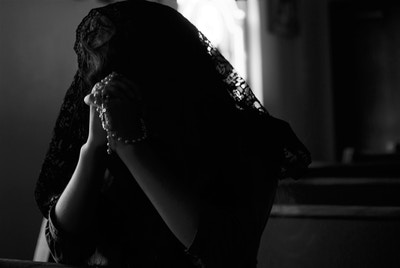Introduction
My primary intent for writing this blog, at present, is to share the bereavement journey of a parent who lost a child, and who lost a child to suicide. My purpose is to make a connection with those in similar situations. For them to realize they are not alone feeling and experiencing this new world they have been given. It also is to inform those in our world what we are experiencing.
I want to feel the emotions I reference in this blog out of respect for my son. I love him.
The intent is not to “work through” anything. My son is no longer with us. His death is final. There is nothing to work though. I want to feel the emotions I reference in this blog out of respect for my son. I love him. He deserves that I feel these emotions: grief, guilt, and many other emotions. Please read on.
Chronic Sorrow
I went through several therapists before I found the right one, but each of them agrees with the authors of the article, “When Sorrow Never Stops” (Lightfoot & Stricklin, 2016) that the death of a child is the most horrendous, severe, and debilitative form of bereavement a person can experience. There is no cure. It is something you learn to live with. My psychiatrist tells me that time helps, but the timetable is different for each person. I attend a survivors’ support group, and the majority are parents. For some parents, it has been three years since they lost their child. They say living with the loss gets better, but the pain remains. There are still tears when they speak of their children.
My devastation is two-fold: the loss of my son and the loss of my projected future. I will never see my son again.
The medical designation for this kind of grief is “Chronic Sorrow,” a person experiences ongoing despair because of a significant loss. The shortened list of emotions includes sadness, sorrow, despair, guilt, anger, disbelief, pain, and anxiety. The chronic sorrow is intertwined with brief events of happiness within the more extended periods of grief and suffering that has no end in sight. This kind of grief is forever (Eakes G. G., M. L. Burke, M. A. Hainsworth, 1998).
My devastation is two-fold: the loss of my son and the loss of my projected future. I will never see my son again. I will never have any new experiences with him, feel his touch, hear him laugh or talk. I will never again see his beautiful face, see him happy doing the things he loved. I will never see him mature beyond his young age of 23.
I lost my hopes and dreams: what I envisioned for my remaining life. In a 2009 article, (Ronen, R., W. Packman, N. P. Field, B. Davies, R. Kramer, J.K. Long) write that parents of a lost child feel like a portion of themselves has died as well. I had two children, and one is gone. There is a hole that cannot be filled.
Someone told me that my son would want me to move on. Even if I get out of bed, go to work, have new experiences, they will never be with him. I will never again get to see my two children experiencing life together. Simple things like him teaching her how to drive the boat. Dancing together at weddings. Going to Broadway shows together. Walking through museums, the two of them teasing each other, making up stories on the meaning of the art. Walking through the streets of New York City, shopping, helping each other choose a pair of celebrity brand sunglasses. Experiencing eating at memorable places together.
I now see my life as two: the life before he died and the life after. I will never get the life I envisioned. That life is gone forever.
We four talked about the family trips we wanted to take together. He was to help me plan our winter holiday trip to Hawaii. We talked about Europe, renting a high-end car and driving the iconic roadways that were highlighted in the BBC show Top Gear. He even found a villa to rent. I will never get to see him have a family and bring them into ours. Our lives will now just consist of my daughter and her future. I feel sadness for my daughter as her future life is forever changed.
I now see my life as two: the life before he died and the life after. I will never get the life I envisioned. That life is gone forever.
I would like to escape, run away, change my life, in the hope that the pain will go away. I know I cannot do that; I have a daughter who needs me.
It is challenging to envision going back to the routine I had before. I have yet to set my foot back into the gym or do any form of exercise. I previously loved to cook and entertain; many times, with or for my children. Those days are gone. Holidays will be unbearable and going back to the holiday routine, without him there, will be excruciating. I would like to escape, run away, change my life, in the hope that the pain will go away. I know I cannot do that; I have a daughter who needs me to resume traditional activities, to provide her with some consistency. I live my life for her.
I had asked my therapist for literature on the grief of a child, so those in my world could understand what I am going through. This grief of chronic sorrow is both physical pain and emotional pain that will never go away (Arnold & Gemma, 2008). My dad told me he thought he was doing fine; then he read one of my blog posts, and it brought back his pain. I told him that the pain would be a “forever” as is learning how to cope with it as an ongoing journey. There will be periods of excruciating agony. He let out a sigh and said, “Yes.” It is about coping. He lost his wife, my mom when she was fifty-one. Each person must find their coping mechanisms.
For me, it is not my faith. I feel God betrayed me, and I have great anger projected in that direction. Those in our circle try to push their faith on me. I respect their choice to go to their faith. It just is not for me. I am not alone in this. One article states, ”God often becomes the target of choice for anger” (Triplett, 2010). I have found writing down my thoughts is a way to release my built-up emotions. I write to my son almost every day, letting him know how much I miss him, what I have learned about his life, how sorry I am for everything, intertwined with my memories of the way we were.
If you wish to walk a little way with me on my bereavement journey, the thing that you can do is not being judgmental. Be a listener. Ask deeper questions beyond, “How are you?” I will never answer anything but “Fine.” to that question. Talk about my son. Share what you are missing about him. Verbalize your grief. Do not wait for me to reach out to you to ask for anything. I rarely will call you first.
I am thankful for those in the suicide survivors’ loss support group. Going there once a week is the thing I do for myself. It helps to be with people like me. It also helps to be with our other friends who have lost a child. I am so thankful they have extended their friendship to my husband, daughter, and me.
I am also thankful for my friends and extended family who call me, text me, and listen to me.
References
Arnold, J. and P. B. Gemma P. (2008). The continuing process of parental grief. Death Studies, 32(7), 658–673. doi:10.1080/07481180802215718
Eakes, G. G., M. L. Burke, M.A. Hainsworth M. (1998). Middle-range theory of chronic sorrow. Image: The Journal of Nursing Scholarship, 30(2), 179–184.
Lightfoot, C. and S. Stricklin, (2016). When Sorrow Never Stops, from the Journal of Christian Nursing: January/March 2016 – Volume 33 – Issue 1 – p 22–29. Web Site: https://journals.lww.com/journalofchristiannursing/Fulltext/2016/01000/When_Sorrow_Never_Stops.10.aspx
Ronen R., W, Packman, N. P. Field, B. Davies, R. Kramer, L.K. Long (2009). The relationship between grief adjustment and continuing bonds for parents who have lost a child. Omega: Journal of Death & Dying, 60(1), 1–31. doi:10.2190/OM.60.1.a
Triplett, W. (2010). The sun will come out tomorrow. Bloomington, IN:Universe.

